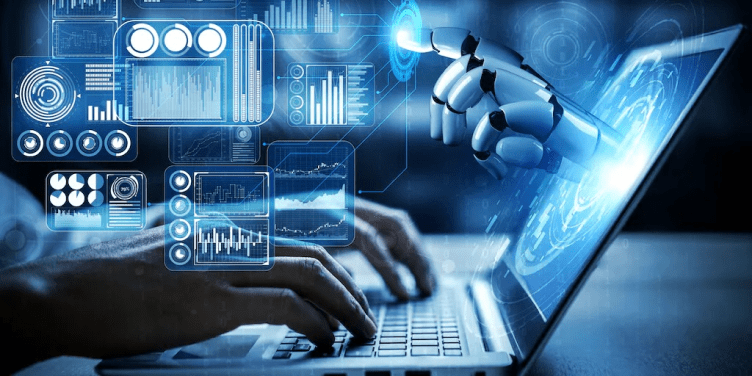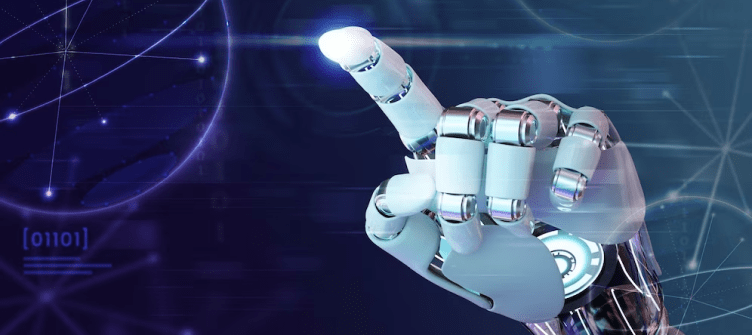Artificial Intelligence’s Impact on Industries and Future Outlook
The advancements in Artificial Intelligence (AI) have revolutionized colorful diligence and transformed the way we live and work. AI has the potential to produce a significant impact in every sector, including finance, healthcare, and manufacturing. It enables businesses to streamline their workflows, increase productivity, and give substantiated gestures to their guests. This composition delves into the vast array of ways AI is transforming our world and the endless possibilities it holds for the future.
AI in Healthcare
AI has the implicit power to revise healthcare by transforming the way we approach patient care. AI-powered tools like prophetic analytics and machine literacy can help clinicians develop individualized treatment plans and diagnose conditions more directly. Medical images such as X-rays and MRI reviews can also be anatomized using AI to detect abnormalities and diagnose conditions like cancer.
One of the most promising areas of AI in healthcare is real-time case monitoring using wearables. These devices, similar to smartwatches and fitness trackers, can track vital signs like heart rate, blood pressure, and oxygen levels. By analyzing this data, AI algorithms can identify patterns and trends, allowing clinicians to detect health issues before they become serious.
Still, the use of AI in healthcare also raises enterprise concerns about case data sequestration and security. As AI algorithms heavily rely on access to large quantities of data, it’s essential to ensure that patient data is protected. The ethical and responsible development and use of AI technology in the healthcare field is also critical, with a focus on perfecting patient issues rather than just reducing costs.

Although there are obstacles to overcome, the potential for AI to enhance patient care is vast. With technological advancements, the healthcare industry is poised to see more inventive and cutting-edge AI operations. The possibilities for perfecting patient issues through AI are abundant, making this a thrilling time for the healthcare field.
AI in Finance
AI is transforming finance by enabling more accurate prognostications, faster decision-making, and more individualized services. Machine literacy algorithms are being used to dissect vast quantities of fiscal data and prognosticate request trends, making it easier for investors to make informed opinions. AI-powered chatbots are also being used to give individualized client service, perfect the client experience, and reduce costs.
In addition to prognosticating request trends and perfecting client service, AI is also being used in finance to decry fraud and help combat fiscal crimes. Machine-learning algorithms can dissect large volumes of fiscal data in real-time to identify patterns that may indicate fraudulent exertion. This helps fiscal institutions to decry and help fraudulent deals, guarding both the institution and its guests.
Another area where AI is making a significant impact in finance is in threat operations. Machine literacy algorithms can be used to dissect data from a wide range of sources, including fiscal statements, credit reports, and social media, to identify implicit pitfalls and help associations manage those pitfalls more effectively.
Still, there are also enterprises concerned about the use of AI in finance, particularly when it comes to issues of transparency and responsibility. Critics argue that the complexity of AI algorithms can make it delicate to understand how opinions are formed and that this lack of transparency could lead to unintended consequences.

Overall, the use of AI in finance is still in its early stages, but its implicit ability to transfigure assiduity is significant. As the technology continues to evolve, we can anticipate seeing more sophisticated operations of AI in finance that will enable more accurate prognostications, faster decision-making, and more individualized services.
AI in Manufacturing
AI has been a game-changer in the manufacturing industry, optimizing product processes, cutting costs, and enhancing overall product quality. AI is used in manufacturing to optimize the force chain, examiner outfits, and product processes. With AI, manufacturers can predict outfit failures before they occur, resulting in fewer timeouts and increased productivity. It can also be used to dissect data and identify areas for process enhancement.
Another area where AI is making a significant impact is in product design. By using machine learning algorithms, manufacturers can simulate different design options and choose the one that meets their conditions for functionality, continuity, and cost-effectiveness. This not only saves time and money, but it also leads to better products that are more effective and easier to produce.
AI is also being used in quality control. By assaying data from detectors and cameras, AI algorithms can detect blights in real-time, allowing manufacturers to identify and correct issues before they affect expensive product crimes. This improves product quality, reduces waste, and enhances client satisfaction.
Despite the benefits of AI in manufacturing, there are also challenges that need to be addressed. One challenge is the need to upskill the pool to acclimate to the changes brought by AI. Another concern is the ethical and responsible use of AI, with a focus on ensuring that the technology is used to profit society and not harm it. Overall, AI is poised to continue revolutionizing the manufacturing industry and helping manufacturers stay competitive in the global marketplace.

AI in Education
Artificial Intelligence (AI) is revolutionizing education, transforming the way scholars learn and preceptors educate. With the added vacuity of data and advanced analytics, AI can epitomize the literacy experience, helping preceptors identify scholars’ strengths and weaknesses, tailor they’re tutoring styles, and develop further effective tutoring strategies.
One of the most promising operations of AI in education is substantiated literacy. With AI, preceptors can produce adaptive literacy environments that acclimate to each pupil’s requirements, capacities, and learning styles. AI algorithms can dissect data on scholars’ performance, potential, and engagement to produce customized literacy plans and give real-time feedback.
Another area where AI is transforming education is in the development of intelligent training systems (ITS). ITS uses AI to give substantiated instruction, feedback, and guidance to scholars. These systems can identify the pupil’s position of knowledge, track their progress, and give support and feedback in real-time, enhancing the literacy experience.
AI is also being used to enhance the quality and effectiveness of assessments. With AI, preceptors can develop more accurate and dependable assessments, including automated grading systems that can grade essays, short answer questions, and indeed fine equations. AI can also be used to decry infidelity and plagiarism, providing a more secure and fair evaluation process.

While AI is transforming education, there are also challenges that need to be addressed. One of the biggest challenges is ensuring that AI is used immorally and responsibly, with a focus on perfecting the quality of education and not just reducing costs. As AI is espoused more extensively in education, it’s essential to ensure that pupil sequestration and data protection are maintained. As the technology continues to evolve, it’s important for preceptors to remain informed and adaptable to the changing geography of AI in education.
AI in the IT Sphere
One of the crucial areas where AI is having an impact on the IT sphere is in software development. AI-powered tools are being used to automate law generation, testing, and deployment, allowing inventors to concentrate on more complex tasks. This not only speeds up the development process, but also improves law quality and reduces crimes.
AI is also being used in IT to enhance cybersecurity. With the increase in cyberattacks, businesses need to constantly protect their systems and data to ensure they’re secure. AI algorithms can dissect large volumes of data to identify patterns and detect anomalies, allowing businesses to quickly identify and respond to implicit security pitfalls.
Another area where AI is being used in IT is in client service. AI-powered chatbots can snappily and efficiently respond to client inquiries and provide support, freeing up staff to concentrate on more complex tasks. These chatbots can also use natural language processing to understand client queries and give individualized responses.

Eventually, AI will be used in the IT sphere to enhance business intelligence and decision-making. By assaying large volumes of data, AI algorithms can identify trends and patterns, allowing businesses to make data-driven decisions. This can include prognosticating client growth, optimizing pricing strategies, and relating new request openings.
Overall, AI is transforming the IT sphere, enabling businesses to work more efficiently, make better decisions, and enhance cybersecurity. As AI technology continues to evolve, we can expect to see further inventions in the IT sphere in the years to come.
The Future of AI
As we can see, the impact of Artificial Intelligence (AI) is immense and growing. Its capability to dissect vast quantities of data in real-time and learn from it has the implicit ability to revise a wide range of diligence, from healthcare to finance to education.
Still, as AI becomes further integrated into our lives, we must also be apprehensive of its implicit pitfalls and downsides, such as job relegation, data sequestration enterprises, and prejudiced algorithms.
Overall, it’s clear that AI isn’t just a buzzword or a fleeting trend. It’s a transformative technology that’s been reshaping the world as we know it and will continue to do so for many years to come. The key to maximizing its benefits while minimizing its pitfalls is to ensure that AI development is ethical, transparent, and inclusive. By doing so, we can create a future that’s both innovative and indifferent.

Conclusion
To summarise, the impact of AI is inarguable, and its eventuality is vast. By using AI’s capabilities in healthcare, finance, education, and other areas of diligence, we can achieve significant progress in areas such as preventing complaints, fiscal addition, and substantiated literacy. Still, to completely realize the benefits of AI and alleviate its pitfalls, we must prioritize responsible and ethical AI development. This means investing in exploration and education, promoting transparency and responsibility, and fostering diversity and inclusion in the AI community. With these sweats, we can produce a future in which AI is a force for good, perfecting the lives of people around the world.
![]()
Subscribe to us










